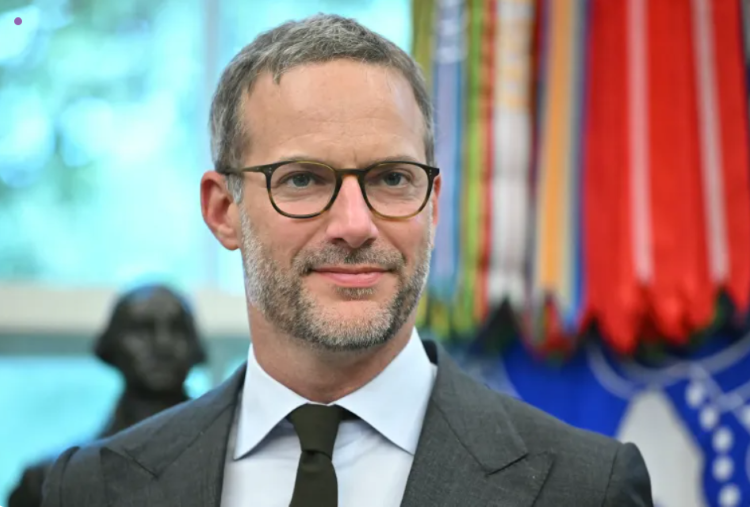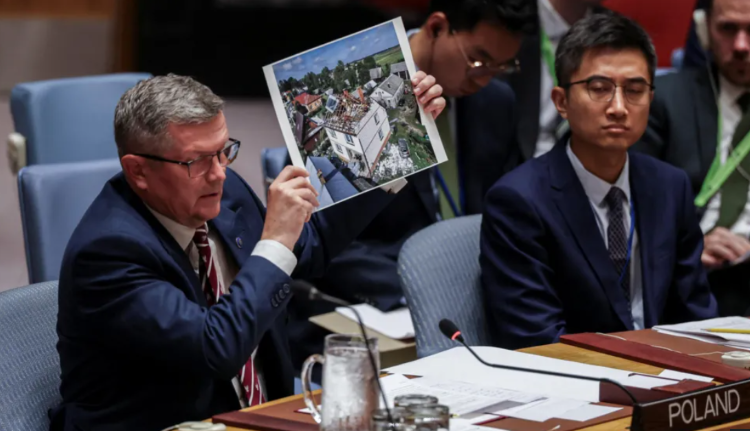A provincial theatre celebrates an anniversary. In the dressing room — two men: a comic and a tragedian, not on the guest list. On the table — cheap vodka, a jar of pickles. The tragedian, taking a sip, mutters gloomily: “They didn’t invite us… They forgot us…” The comic, sipping and smiling, replies: “Didn’t invite us? They remember!” This anecdote ironically reflects the mood of Swan Song, the new production by Jahangir Novruzov at the Sheki State Drama Theatre in Azerbaijan. A two-hander: an aging actor, Vasily Vasilyevich Svetlovidov, and his prompter. One speaks the lines, the other keeps them. Without the latter, the former is just a voice in the void.
Anton Chekhov’s 1887 one-act play, based on his short story Calchas, becomes in this context more than a commemorative staging — the playwright turns 165 this year. Novruzov’s production is a public autopsy of the national theatre, conducted with utmost delicacy and artistic honesty. What could have been a nostalgic evening for veteran actors transforms into a theatrical essay on a time when everything that once defined theatre shows no signs of life. And it’s not the past being mourned — it’s the present. Swan Song becomes a requiem for Azerbaijani theatre. A play not about the unperformed, but the lost.

Swan Song, dir. Jahangir Novruzov, Sheki State Drama Theatre, Azerbaijan, 2025. Photo by Tural Agayev


Swan Song, dir. Jahangir Novruzov, Sheki State Drama Theatre, Azerbaijan, 2025. Photo by Tural Agayev
Svetlovidov is played by Khanlar Gashymzade. His character is not merely a forgotten actor, struggling with his lines. He is not reminiscing over a golden repertoire of past roles. Rather, he embodies the roles he never got to play, the trust he was never given — and his Shakespearean monologues sound like: “I have been playing Hamlet in the madness of passion for years — for myself alone…” He recites lines from Pushkin and Griboyedov, recalls love dramas — yet it all feels as if he’s rehearsing not a performance, but his own death. The prompter, played by Abulfat Salahov, is the anchor — the keeper of the text, the one who holds time together and steadies the actor. Without the prompter, the theatre is silent; without him, the actor is merely an old man in costume.
Set designer Saib Akhmedov opts for a minimalist approach: emptiness, semi-darkness, not a single superfluous object. Light only where the character’s consciousness still flickers. The music (designed by Zeynab Khalilova) sounds like a memory of something long gone. Not accompaniment, but a breath from beyond. Not a soundtrack, but an echo — as if the orchestra stayed in another room, playing for someone already dead.


Swan Song, dir. Jahangir Novruzov, Sheki State Drama Theatre, Azerbaijan, 2025. Photo by Kamran Kasimov
Chekhov’s text is supplemented with his own reflections on theatre. One cannot help but recall Ronald Harwood’s The Dresser — the same backstage setting, the same elderly actors, the same tragicomic murmurs about glory. But Chekhov’s Svetlovidov is more than a burned-out genius. He is Calchas — the ancient Greek priest and prophet. His prophecy is not a warning, but a postmortem. Everything has already happened. Theatre, as it was, is dead. The actors remain. The play does not.
For director Jahangir Novruzov, the production is deeply personal — this is his second engagement with Swan Song. In 2015, he played Svetlovidov himself — with grand gesture, celebratory flair, and passionate verve. That production was dedicated to his illustrious grandfather, Jahangir Zeynalov, founder of Azerbaijan’s realist theatre. Today, Novruzov returns to Swan Song not as an actor, but as a director — a bearer of theatrical memory, a representative of a proud dynasty. One does not revisit the same work twice by accident. Back in 2015, the performance rang as a warning: urgent, emotional, still clinging to hope. Now it is a solemn statement. The values and ideals Novruzov once urged to preserve have now been lost entirely. It’s no coincidence that the backdrop of the stage bears an epilogue — in truth, an epitaph: “This performance is dedicated to our artists who gave their lives to the art of theatre.”


Swan Song, dir. Jahangir Novruzov, Sheki State Drama Theatre, Azerbaijan, 2025. Photo by Kamran Kasimov
These words underscore the fundamental difference between devotion and self-promotion, between theatre as a calling and theatre as a career path or a stage for self-display. Those to whom the production is dedicated did not chase likes, profit, or careers beyond the stage. They served theatre with their lives — without condition, without calculation.
Today, theatre is increasingly used as a tool: for career-building or for image-making. The actor becomes “content,” the director — a “curator,” the stage — a “project platform.” The concept of service has been replaced by self-expression, where the text, the partner, and the audience are secondary to the “self.” By inscribing this dedication on the backdrop, Novruzov marks the chasm between generations. The theatre to which artists once devoted themselves is gone. The theatre in which people perform for personal gain remains. But which endures longer: service or self-expression? The production offers no answer. It mourns in silence. And in that silence, says more than any monologue.
Jahangir Novruzov recalls: “I remember the 1970s well. We were young, full of enthusiasm, passionate about our work. Sometimes we went without pay, lived in poverty, and times could be truly hard. But it didn’t break us — not as people, not as artists. We kept going, holding on to theatre, because we couldn’t do otherwise. We took part in international festivals, won prizes, and received deserved recognition.”
The paradox is that this production — by a mature master — feels more modern, not in form but in intellectual depth, than many contemporary works by young Azerbaijani directors whose theatrical language often turns out surprisingly archaic. Novruzov refers to the 1970s not as a style, but as an era of genuine experimentation — when artists like Efremov, Tovstonogov, Efros, Zakharov defied the system and created real theatre.


Swan Song, dir. Jahangir Novruzov, Sheki State Drama Theatre, Azerbaijan, 2025. Photo by Kamran Kasimov
Today, similar pursuits are often mere imitations, masquerading as breakthroughs. What’s presented as innovation is often a repetition of what has already been done, and long since faded. A Chekhovian “second-rate sturgeon.”
In another theatre, another country, such a production might be dismissed as the nostalgic grumbling of an old master — “things were better back then.” These sentiments are familiar: every generation sees its own theatre as authentic, and the next as misguided. In a different context, Swan Song could feel old-fashioned, conservative, even obsolete.
But in the reality of contemporary Azerbaijani theatre, the message is sharply amplified. Here, the production feels not like a complaint but like a requiem — not for a particular era or figure, but for the very idea of theatre as the art of personality and vision. The national theatre is not merely in decline — it is in collapse. There are no prominent names, no energy, no language.


Swan Song, dir. Jahangir Novruzov, Sheki State Drama Theatre, Azerbaijan, 2025. Photo by Tural Agayev
Among dozens of “People’s” and “Honored” artists in Azerbaijan, few remain for whom audiences still go to the theatre. There are no names that have become cultural landmarks. No actors with a reputation, a myth, or a devoted following. The last who possessed this — belonged to the Soviet school. The moment when the national theatre could have developed a new voice has passed. It simply didn’t happen. The experiments of Yuğ (Vagif Ibrahimoglu), the interactive work of dOM theatre (Tarlan Rasulov), and the early Sheki productions of Vagif Abbasov — all were potential starting points. But none became a new reality.
Today, amid general stagnation, the only noteworthy presence is perhaps the Russian-speaking emigrant theatre O2 — offering structurally coherent, if derivative, performances aimed at an unseasoned local audience. The rest (and the author of these lines has visited all Baku theatres and many in the provinces) is either amateurism unworthy of a stage, or plagiarism disguised as tradition. To quote Chekhov’s The Seagull: “Once there were mighty oaks, now we see only stumps.” Harsh words — but no other language seems adequate when remembering what theatre once was here.


Swan Song, dir. Jahangir Novruzov, Sheki State Drama Theatre, Azerbaijan, 2025. Photo by Tural Agayev
“The smallest drama in the world” — that’s how Chekhov described his Swan Song. But within this miniature, with its simple plot and two characters, lies the bitter truth of theatre: its loneliness, its forgotten names, its dependence on memory, and the audience. This “small drama” turns out to be astonishingly vast: containing an actor’s fate, the story of a profession, the end of an era, and a message for the future. In Novruzov’s production, it becomes a precise and powerful statement on the fragility of culture and how easily it is destroyed, not by censorship, but by indifference and neglect. Thus, the smallest drama becomes an honest theatrical confession: not about roles, fame, or style, but about what remains when everything has been played.
This was not a call for eternal values. It was a quiet, bitter, yet sincere lament for those who are gone — and for what will not return. This production is not about the glory of theatre, but its shadows. About those who remembered the text and the meaning behind it, when others had already forgotten what the stage is, and what it stands for. The actor remembers his roles. The theatre remembers its actors. The performance ends with a farewell gallery of theatrical greats. As memory. As a reminder. And as reproach.


Swan Song, dir. Jahangir Novruzov, Sheki State Drama Theatre, Azerbaijan, 2025. Photo by Tural Agayev
The prophecy of Novruzov’s Swan Song rings both bitter and luminous. Luminous — because the very fact that such a production exists in Azerbaijan is a stroke of fortune. Judging by its energy and artistic precision, this is not Novruzov’s swan song — neither as actor nor as director.
We live in an age where theatre increasingly tries to shout louder to be heard. In Sheki, they chose differently: let it speak in a whisper. A theatrical one. And this whisper is stronger than any scream. According to ancient legend, the swan, silent all its life, sings once before death — a single, hauntingly beautiful sound. When that song fades, real silence falls. A theatrical pause. A song of silence for a theatre that Azerbaijan has nearly lost.
This post was written by the author in their personal capacity.The opinions expressed in this article are the author’s own and do not reflect the view of The Theatre Times, their staff or collaborators.
This post was written by Emiliia Dementsova.
The views expressed here belong to the author and do not necessarily reflect our views and opinions.

















